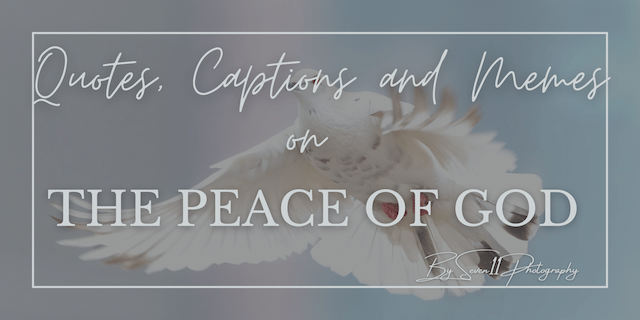"Glory of God" Meaning and How to Apply to Your Life - Inspiration Photography and Christian Devotions

“Glory of God” Meaning and How to Applies to Your Life
The Glory of God meaning. This is one of those terms I have heard countless times growing up in church. I can honestly say I have taken for granted my association of this term and never learned its true meaning. I associated it with the awe and wonder of God’s creations and never searched further. Like many of the words in our Defined Series, the meaning of Glory has taken new root from its original Hebrew translation. We sing it in our songs of praise and we read it in our Bible translations, but do we even know where this word originated? To find the future of our faith, we must look to the past. God, Himself inspired the Bible; therefore, there must be a reason he uses certain words in certain languages. It is up to us to dig deeper to grow closer to our Heavenly Father.
Why Dig Deeper?
What would you say is your meaning for the word, glory? How do you use it in your walk with Christ? Many would say we use it as an adjective that describes God’s greatness. Others might say it’s a noun as we “give God the glory.” But English does not separate the unlimited glory of God from the “glory” achieved by mankind. In English, we could say that a soldier on the battle field showed glory and valor. A gold medalist receives the glory for his/her victory. These are great accomplishments! But the weight of the word “glory” no longer carries a meaning that God alone can claim.
Hebrew is a sacred tongue, from which, God chose the Old Testament to be written. And translated Hebrew terms from thousands of years ago have to fit into terminology that we use today. But time has a way of “watering down” and changing the meaning of terms and word usage. As an example from our own language, there was a time when you would say someone was “cool,” and that meant they needed to put on some extra layers of clothing to warm up. In contemporary terms, “cool” can can mean “popular, outgoing, or suave.” Words in the Bible can be very similar, that’s why it is important that we understand the root words and the origin of terms to truly understand what the writers meant when they were inspired by God to write His Testaments.
Digging into the Hebrew Texts to Discover The Glory of God and its Meaning
“Kabed” is the Hebrew origin of the word we know in English as “glory.” Kabed in its simplest translation means something being heavy or weighty; often describing strength, power, or ability. From kabed, came the word we see in the Hebrew Bible as glory, “kabod” pronounced kaw-bode’. According to the Strong’s Concordance, the Hebrew use of this word means honor, magnificence, dignity, splendor. Kabod occurs in the Old Testament nearly 200 times to describe God’s very presence. When Moses climbed Mount Sinai he saw a burning bush and was in the presence of God’s Kabod. The Ark of the Covenant carried with it the presence of God’s Kabod. And when the priests would enter Solomon’s Temple, there was a single place, the Holy of Holies, where the High Priest alone could be in the presence of God’s Kabod.
This is a special word, one that is not used as lightly as “glory” is today. This is a Godly word, a word to describe the indescribable. And we, as humans, do not possess this kabod. In Isaiah 42:8 we learn that God does not share His Kabod with anyone else. Kabod is God in His pure glory, honor, dignity, splendor and magnificence. Infinitely raised above all men and women on a plain of existence unfathomable to our understanding. Even from its earliest use, God’s glory is a weight too great for any of us to carry, separate or together.
This is different from the times you may see honor or glory referenced in the Old Testament regarding men. An example from Exodus, the Biblical writers described Pharaoh with the word “glory.” Where today, we see the same word, the Hebrew writer used pa’ar (paw-ar’), not kabod, which takes on a totally different meaning. Pa’ar means to embellish or to boast about oneself. They never used pa’ar to describe our God.
The Greeks and the Birth of the Messiah
The term doxa comes from an ancient Greek term that means “to appear, to seem, to think, to accept.” Unlike kabod, doxa is used throughout the New Testament to describe honor, dignity, praise and worship. When the devil took Jesus up to a high place in Matthew 4, he showed Him all the kingdoms of the world, and their doxa (glory). Unlike Hebrew, this word wasn’t created to describe God’s presence but an already existing Greek word the New Testament writers used; similar to how we use glory today. Nevertheless, Jesus uses doxa to refer to Solomon’s “glory,” our Heavenly Father’s glory, and even His own. However, from context, it is apparent that the glory of man may include honor and dignity, but only the glory of God deserves praise and worship.
The Glory of God Meaning For our Lives
What does this mean for contemporary Christians like yourself who may be searching for a take-away to apply to their lives? If you are a follower of Christ, your glory is not your own. God does not share His glory and we must give to God what is God’s. We can never possess something that is God’s alone; however, there is an Earthly type of “glory” that we should not be ashamed to obtain. But we should accept it with humility and loyalty to our Father.
You will not successfully take what has always been God’s. Therefore, trying to take credit for what God has done is a futile attempt of stealing what belongs to the Creator. Give freely to God what is God’s. When in doubt, point to heaven and give your successes to Him. Thank Him constantly for the life you have and tell others passionately what God has done in your life. If you need inspiration, read the humility, faith, and conviction of David from the Psalms. Look deeply at the life of Paul and how he was delivered from impossible situations to spread God’s word around the world. Give God the glory and see how much closer you grow, in a heavenly direction, toward God’s Love.
Written by Jon Frederick and Kathleen Frederick, Christian writers with Seven11Photography.com and authors of Immersion- An Inspirational Christian Photography Collection and Devotional.











